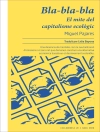Soldatengeschichten Rudyard Kipling – Einmal lebten sehr weit von England drei Männer, die einander so liebten, daß weder Mann noch Weib sie trennen konnte. Sie waren nichts weniger als fein, und nicht geeignet, in die Vorzimmer vornehmer Leute gelassen zu werden, denn sie waren gemeine Soldaten in Ihrer Majestät Armee….
Von diesen Soldaten handeln die Geschichten, die Kipling in diesem Band versammelt hat.
Sobre o autor
Joseph Rudyard Kipling (December 30, 1865 – January 18, 1936) was an English author and poet, born in India, and best known today for his children’s books, including The Jungle Book (1894), The Second Jungle Book (1895), Just So Stories (1902), and Puck of Pook’s Hill (1906); his novel, Kim (1901); his poems, including Mandalay (1890), Gunga Din (1890), and ‘If—’ (1910); and his many short stories, including ‘The Man Who Would Be King’ (1888) and the collections Life’s Handicap (1891), The Day’s Work (1898), and Plain Tales from the Hills (1888). He is regarded as a major ‘innovator in the art of the short story’; his children’s books are enduring classics of children’s literature; and his best work speaks to a versatile and luminous narrative gift.
Kipling was one of the most popular writers in English, in both prose and verse, in the late 19th and early 20th centuries. The author Henry James famously said of him: ‘Kipling strikes me personally as the most complete man of genius (as distinct from fine intelligence) that I have ever known.’ In 1907, he was awarded the Nobel Prize in Literature, making him the first English language writer to receive the prize, and he remains today its youngest-ever recipient. Among other honours, he was sounded out for the British Poet Laureateship and on several occasions for a knighthood, all of which he rejected.
However, later in life Kipling also came to be seen (in George Orwell’s words) as a ‘prophet of British imperialism.’ Many saw prejudice and militarism in his works, and the resulting controversy about him continued for much of the 20th century. According to critic Douglas Kerr: ‘He is still an author who can inspire passionate disagreement and his place in literary and cultural history is far from settled. But as the age of the European empires recedes, he is recognized as an incomparable, if controversial, interpreter of how empire was experienced. That, and an increasing recognition of his extraordinary narrative gifts, make him a force to be reckoned with.’












